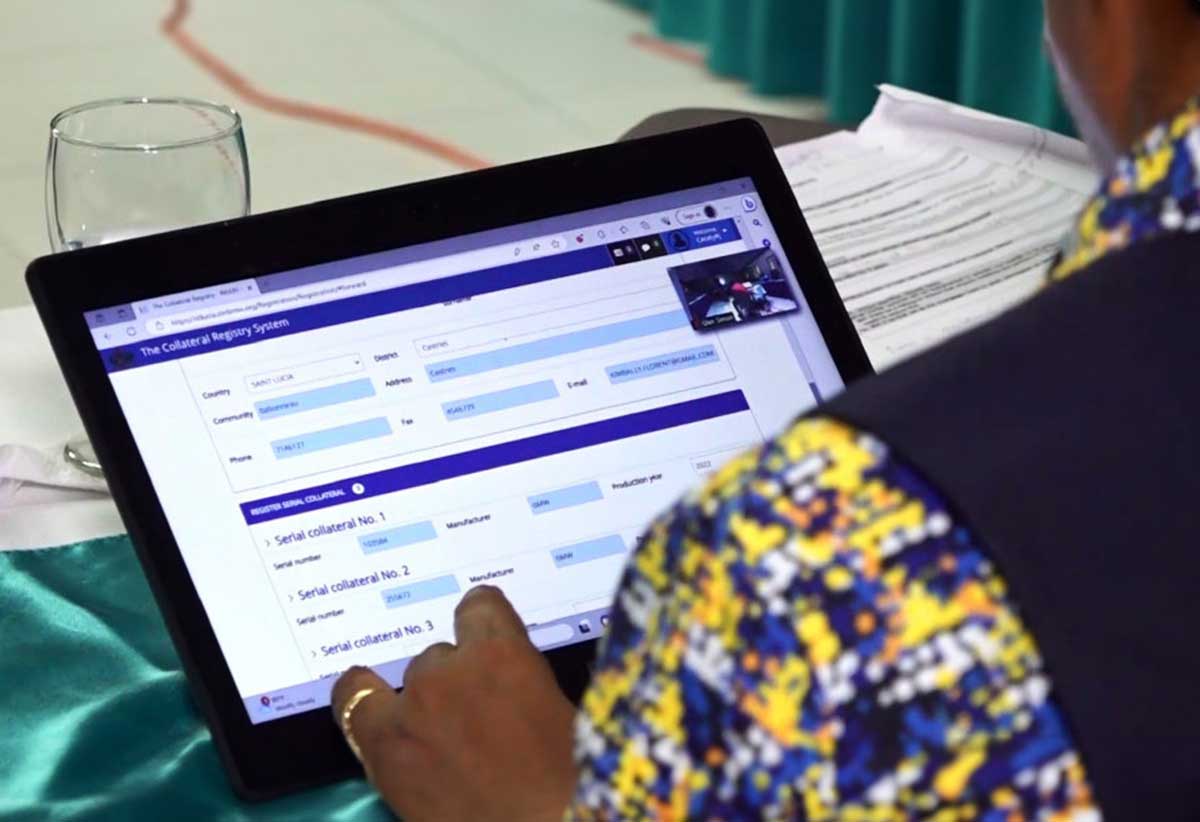
A commencement date has been set for the migration of existing security interests held by financial institutions to the new Security Interest in Movable Properties Registry. The registry will support the Security Interest in Movable Properties Act, passed by Parliament in November 2022 geared at increasing access to finance for Medium, Small, and Micro Enterprises by using their movable assets such as vehicles, equipment, and inventory, as collateral.
Stakeholders from the banking, cooperative, and credit union sectors joined officials from the High Court and National Competitiveness and Productivity Council (NCPC) to agree on a transition date for the Security Interest in Movable Properties Registry. Lisa Florent-Montoute is the Director of the NCPC.
“The NCPC is really excited as the main collaborator for the NCPC to see the large turnout today from the various financial sectors in our discussion for the transitional period. So, we are hoping that at the end of this excise, we will reach a consensus on the transition period that all will be in agreement on,” she said.
The transition period will allow the financial institution to migrate their existing securities from their current systems to the new Security Interest in Movable Properties Registry. The Registry System will be housed and managed from the High Court. Daniel Francis is the Registrar at the Eastern Caribbean Supreme Court.
“I think the session went extremely well. It was quite engaging and I do think there is a general sense of excitement from the financial institution and the credit unions about the introduction of the system. They have seen, well on paper so far, what is system is designed to achieve. The issues that the system is designed to address and I can safely say that we seem to have some considerable consensus on moving together in achieving this registry system,” Francis said.
Senior Country Lead at Republic Bank, Gezella Claxton, and the General Manager at the Laborie Credit Union, Lucius Ellevic provided feedback on the stakeholder engagement session.
“Oh, today is an excellent session for the Collateral Registry. We wanted to clarify exactly how it’s going to work. What are the mitigating factors for making that system work efficiently? So today is very informative. It provides clarity on how the public is going to benefit from this and we as a financial institution to ensure our securities are registered,” noted Claxton.
“On a comparative analysis, I think it offers both efficiency and effectiveness when compared to what presently obtains. One of the things we’re talking about is the ability to search. Presently the ability to effectively search the current system is quite limited and we think that would be a great advantage. The other question of the cost per transaction, we are suggesting a very reasonable cost. So, I think for our members and customers it would then make these types of transactions definitely cheaper and beneficial to our members.”
This stakeholder engagement allowed the officials from the NCPC and the High Court to address many of the questions and concerns from the financial sector representatives regarding the transition period to the Security Interest in Movable Properties Registry.
“Well, I think the primary concern which came out of today’s discussion was the preservation of the rights of the creditors whilst we transition from one system to another and whether there would be any potential for them to lose what we call their order of priority in making that transition. But luckily enough through the legislative process and the other underpinning of the system, those rights are preserved and maintained so that the institutions need not worry about the loss of any right of priority in transitioning over.”
The launch of the Security Interest in Movable Properties Registry is set for November 29th 2023 with a transition period of one year. This is to allow all existing security interests to be migrated to the new Security Interest in Movable Properties Registry.













